
Softerra LDAP Browser is a lightweight version of Softerra LDAP Administrator.
Work with several servers at once, organize them in groups, and easily copy data between them. LDAP Administrator supports LDAPv2 and LDAPv3 protocols and allows working with OpenLDAP, Netscape/iPlanet, Novell eDirectory, Oracle Internet Directory, Lotus Domino, Microsoft Active Directory, CA Directory, Siemens DirX, and any other LDAP server.
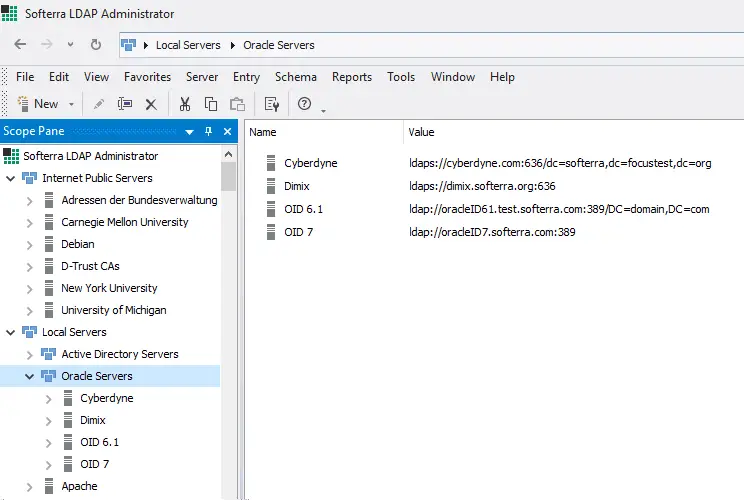
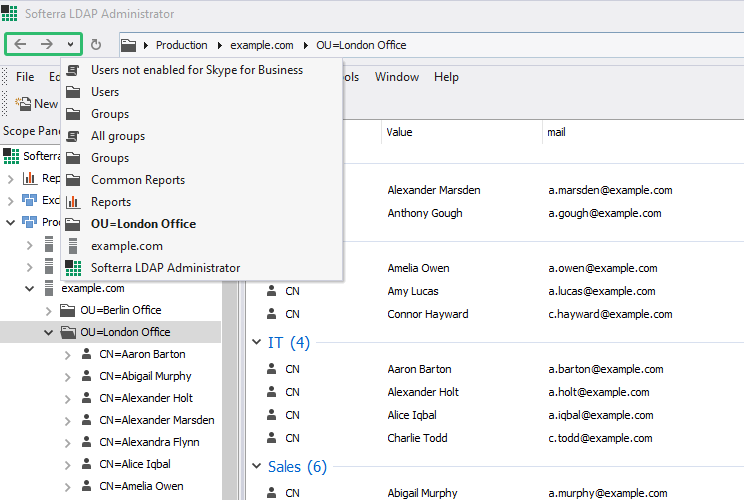
Set various LDAP filters to display only the entries that match your criteria. Quickly access frequently viewed branches by setting a custom base DN to start browsing from. Jump to previously viewed objects using navigation history. And much more.
Use the specially crafted Virtual List View (VLV) and simple paged result controls to retrieve only the entries you need, without waiting for thousands of records to load.
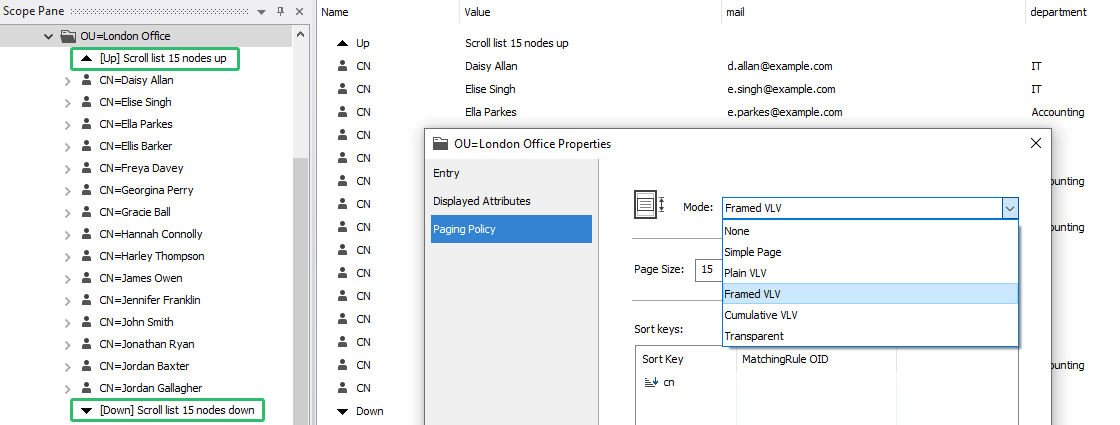
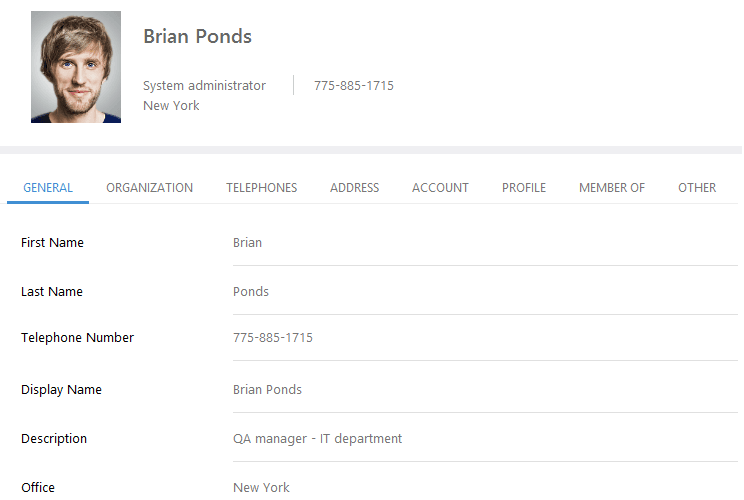
View LDAP entries in a user friendly manner, represented as an HTML page. You can also customize the way the information is displayed. For example, if you don't want some attributes to be displayed for objects of a specific type, you can remove these attributes from the corresponding HTML page template.
Prevent directory data from being accidentally modified or deleted by making your LDAP server profiles read-only in LDAP Administrator.
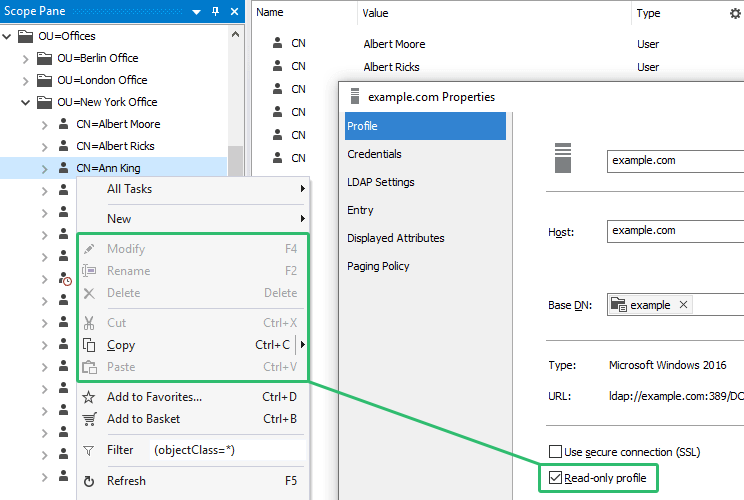

LDAP Administrator fully supports LDAP referrals and provides several modes for handling them.
The template-based method allows you to create new entries quickly and easily, based on the templates with predefined lists of required and optional attributes.
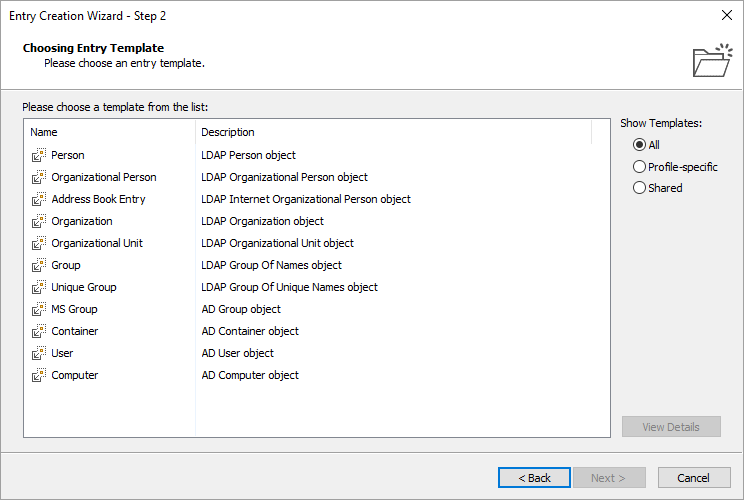
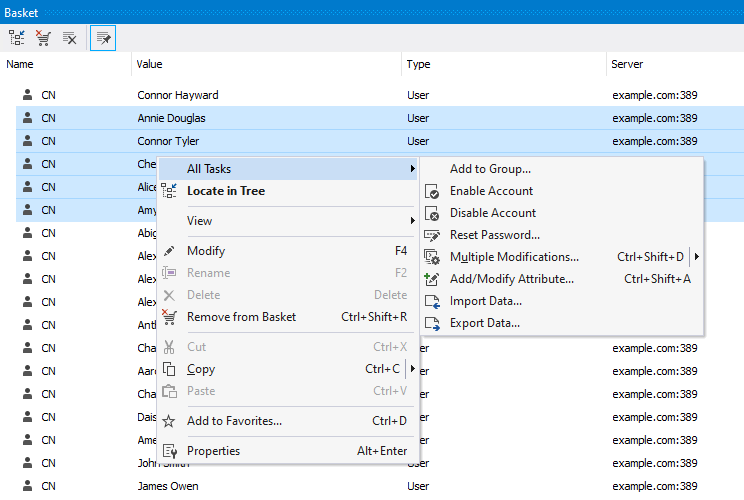
Modify multiple objects simultaneously, wherever they are located. Simply search for objects that fit your criteria, select them, and modify them in bulk.
Move and copy LDAP objects using Windows clipboard, or just drag-and-drop them. Quickly copy object DNs, RDNs, LDAP URLs, or copy the entire entry data in LDIF, DSMLv1, DSMLv2, and CSV formats.

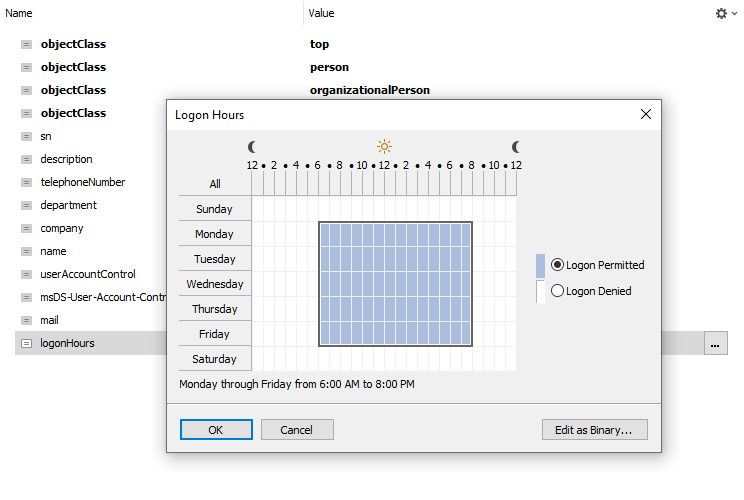
LDAP Administrator provides various attribute value editors strictly associated with attribute type and syntax that allow you to easily modify binary, password, date and time attributes.
Value references allow you to generate attribute values based on other attribute values of the object.
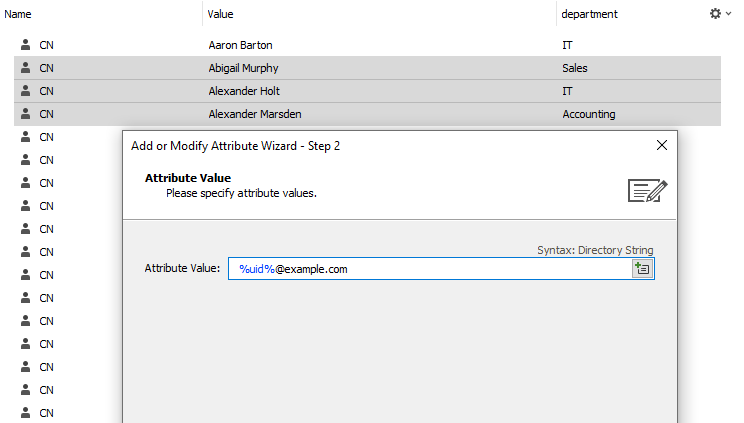
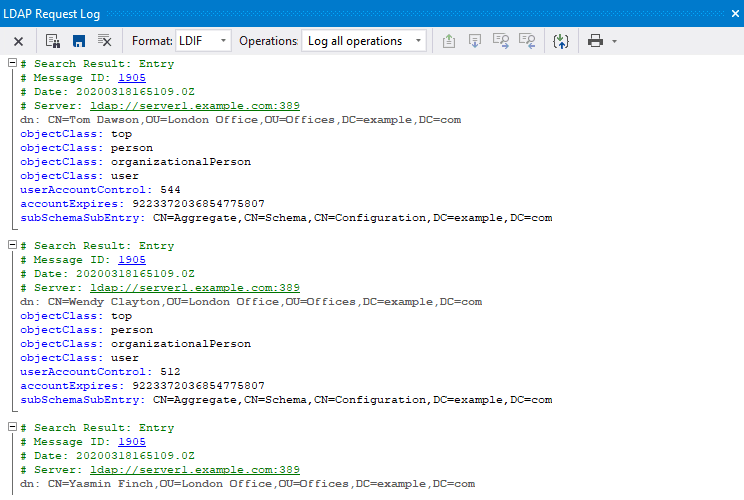
The LDAP request log keeps track of all LDAP requests sent by LDAP Administrator and the responses received from the server.
Search the directory quickly and efficiently using many different search options offered by LDAP Administrator.
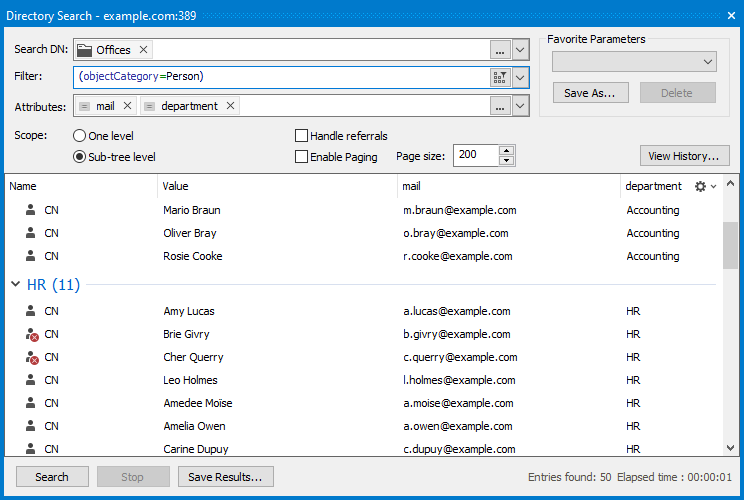

Quick search lets you instantly find a directory object by typing a keyword or a phrase that is a part of its attribute values. Intelligent autocompletion will suggest relevant objects while you are still typing.
Search the directory using the SQL syntax. With LDAP-SQL, you can execute searches that cannot be done using standard LDAP search methods.
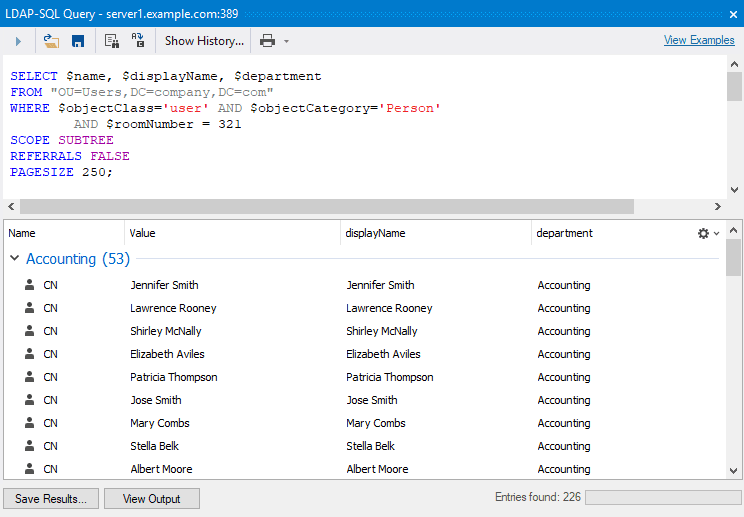
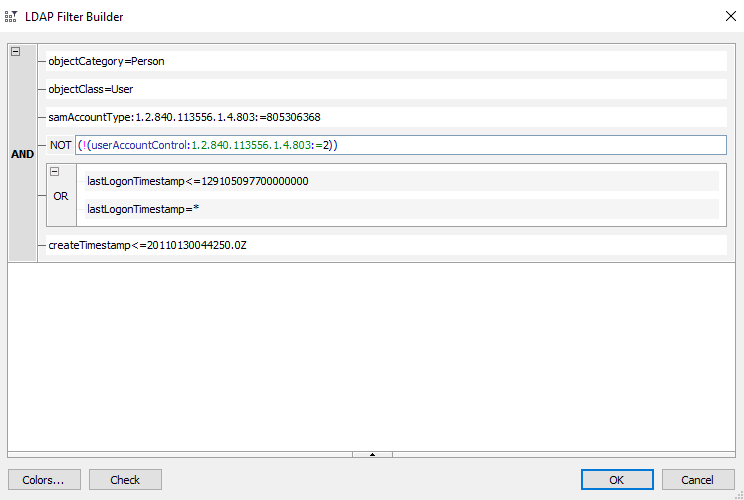
Simplify the creation of LDAP search filters and save them for later usage with the help of LDAP Filter Builder.
Every search made with the Directory Search tool is recorded in history. Quickly find and restore previous searches, pin frequently-used searches, and much more.

Perform search requests that cannot be executed via standard LDAP means. Use LDAP attribute values as criteria for search filters.
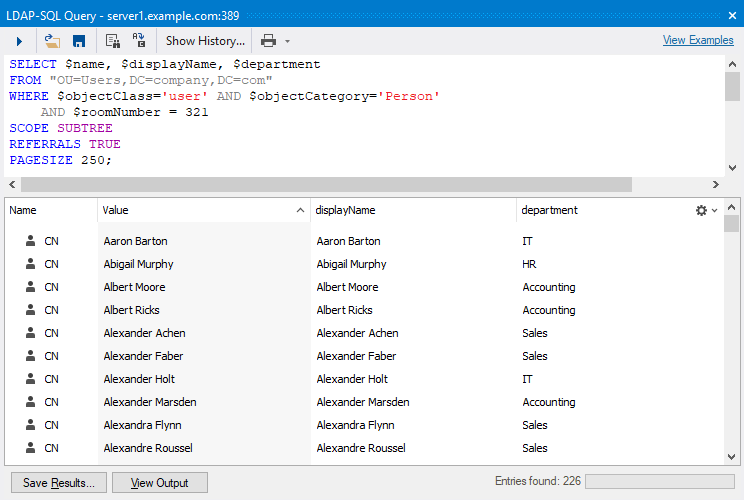
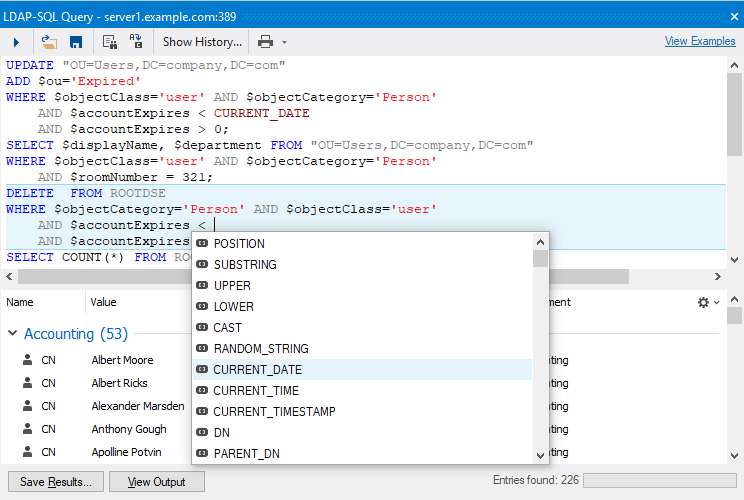
SQL editor is a powerful tool for creating and editing SQL expressions. It offers syntax highlighting, context IntelliSense, undo/redo operations, outlining and other useful IDE features that significantly simplify the creation of SQL queries.
Bulk update or delete LDAP entries that meet your specific conditions. For example, you can easily delete all directory users, whose accounts have expired.


LDAP-SQL provides many built-in functions that you can use in queries to find or perform operations on LDAP entries.
SQL Output pane provides detailed information about the execution of SQL statements, displays syntax and runtime errors, and allows to quickly locate errors in the code.
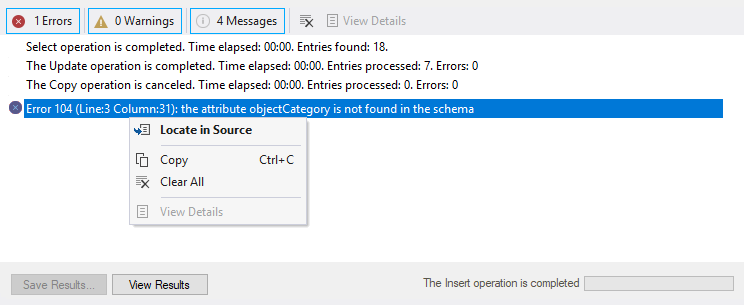
LDAP Administrator lets you easily transfer or back up directory information by exporting it to a file in LDIF, DSMLv1, DSMLv2, MS Excel, CSV, Plain Text, or HTML format.
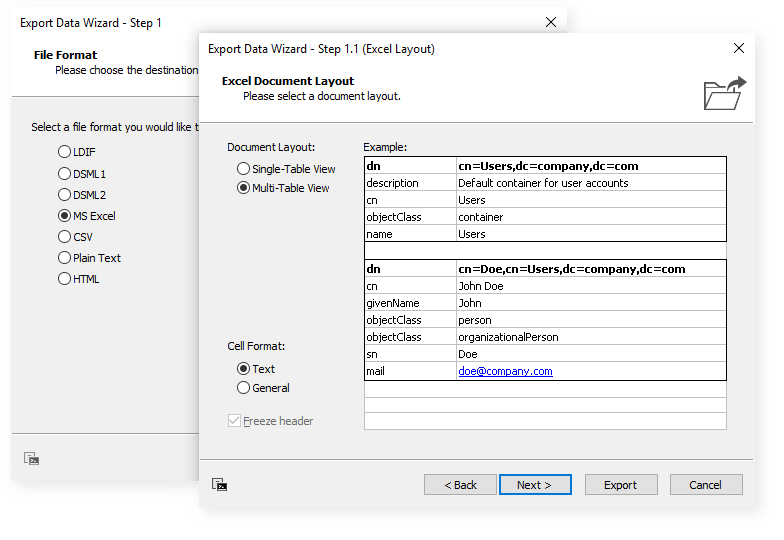
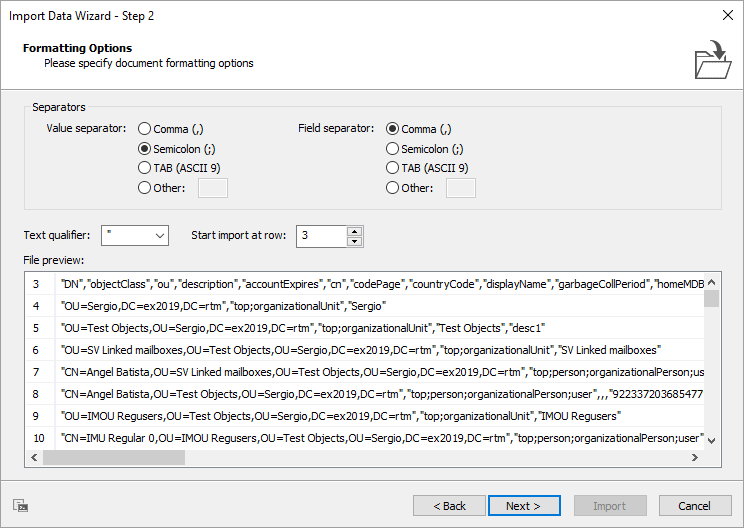
LDAP Administrator provides handy wizards that enable data import from LDIF, DSMLv1, DSMLv2, and CSV files to your directory.
The laimex tool supplied with LDAP Administrator enables you to import/export directory data in an unattended mode. Great for automating LDIF import operations and daily directory backups.
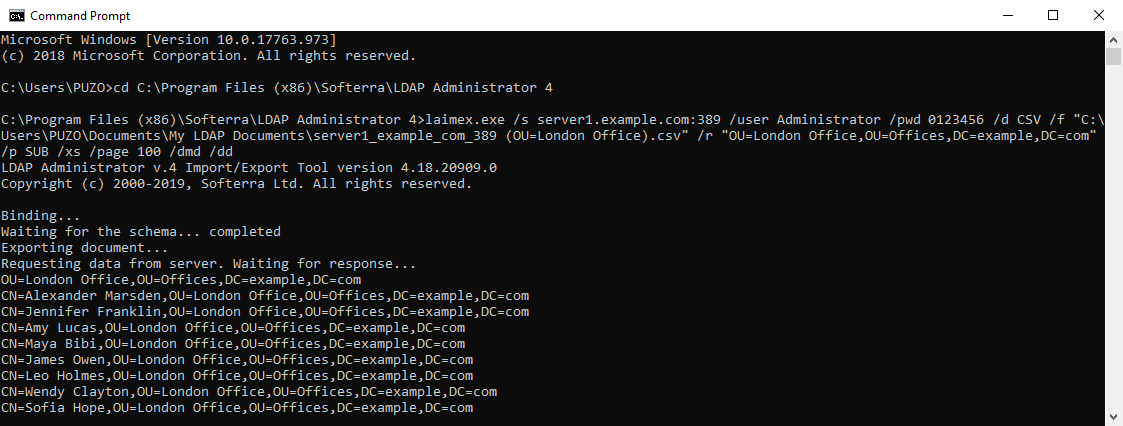
LDAP Administrator offers a large number of out-of-the-box reports, which provide information about widely used directory objects such as Users, Computers, Groups, Organizational Units, POSIX Accounts, etc
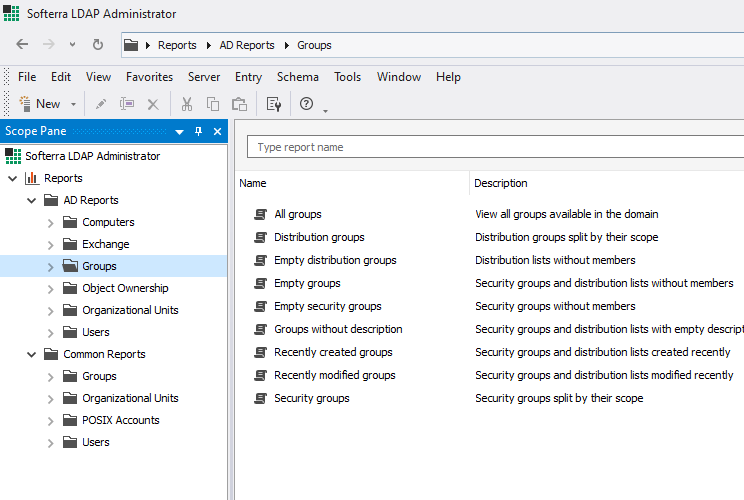
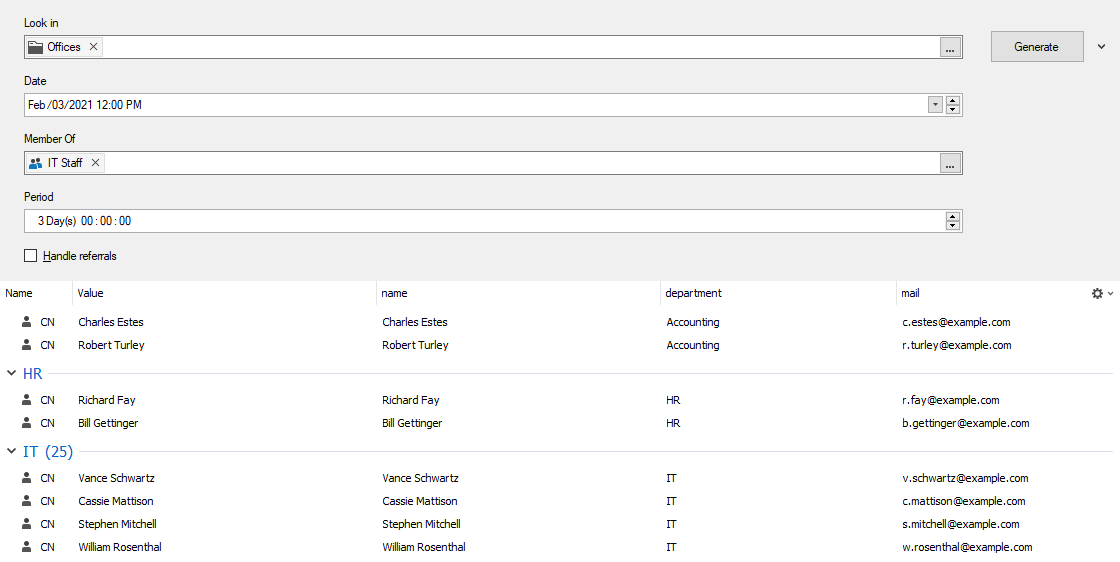
Though LDAP Administrator provides a wide range of ready-to-use reports, sometimes you might need a report that is not on the list. For this purpose, LDAP Administrator gives you the possibility to create absolutely new reports or customize the existing ones.
After a report is generated, you can manage its results in the same way you manage usual LDAP entries: modify them in bulk or export to formats like LDIF, DSMLv1, DSMLv2, CSV, Excel, Plain Text, and HTML. Any search result can also be quickly located in the directory tree.
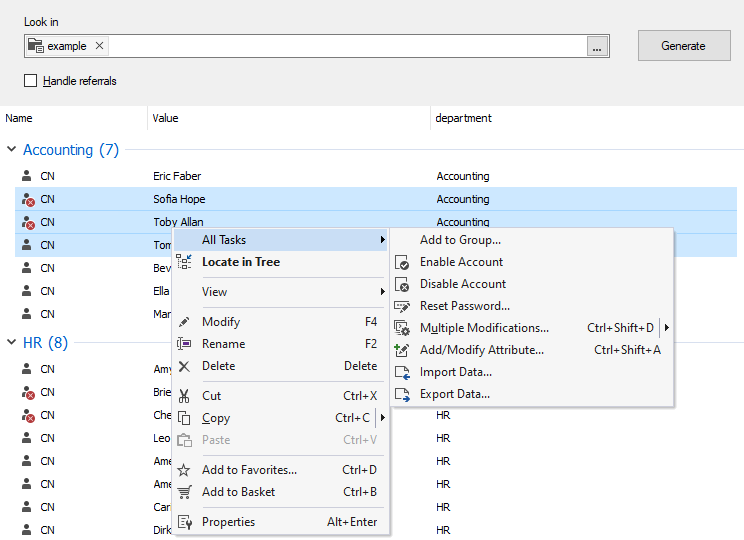
LDAP Administrator supports the most popular secure and non-secure LDAP authentication mechanisms, and ensures safe communication with any LDAP server.
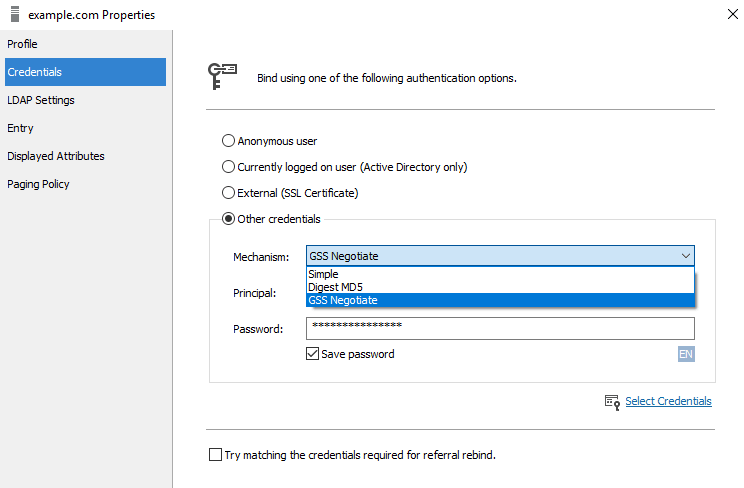
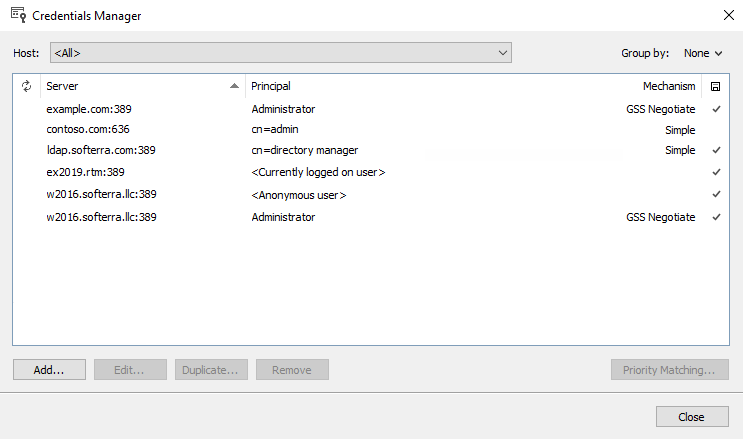
LDAP Administrator has an integrated credentials manager that can securely store the credentials for accessing LDAP servers. Gone are the days of entering the credentials over and over every time you bind to your servers.
Establish secure SSL connections with your LDAP servers to ensure that all transferred data is encrypted and protected.
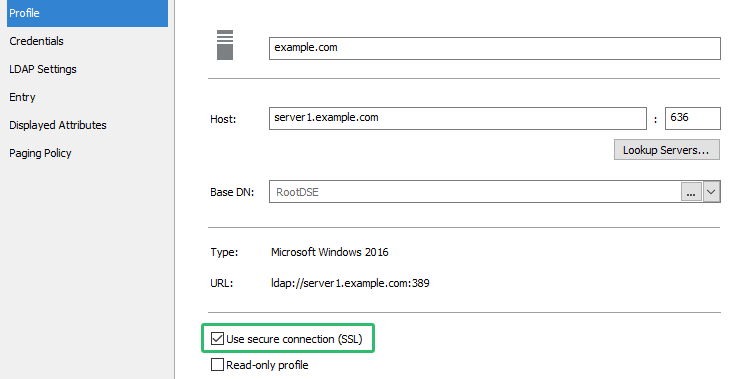
Softerra LDAP Browser is the industry-leading software for browsing and analyzing LDAP directories. It provides a wide variety of features for handy viewing of directory contents, getting information about directory infrastructure and objects.
Right after the very first release Softerra LDAP Browser has become a real breakthrough in IT market thanks to its simplicity and power in equal measures. The software holds highest positions for 10 years already. Some of its features are unique - to date there is anything to match their efficiency in the existing LDAP software packages.
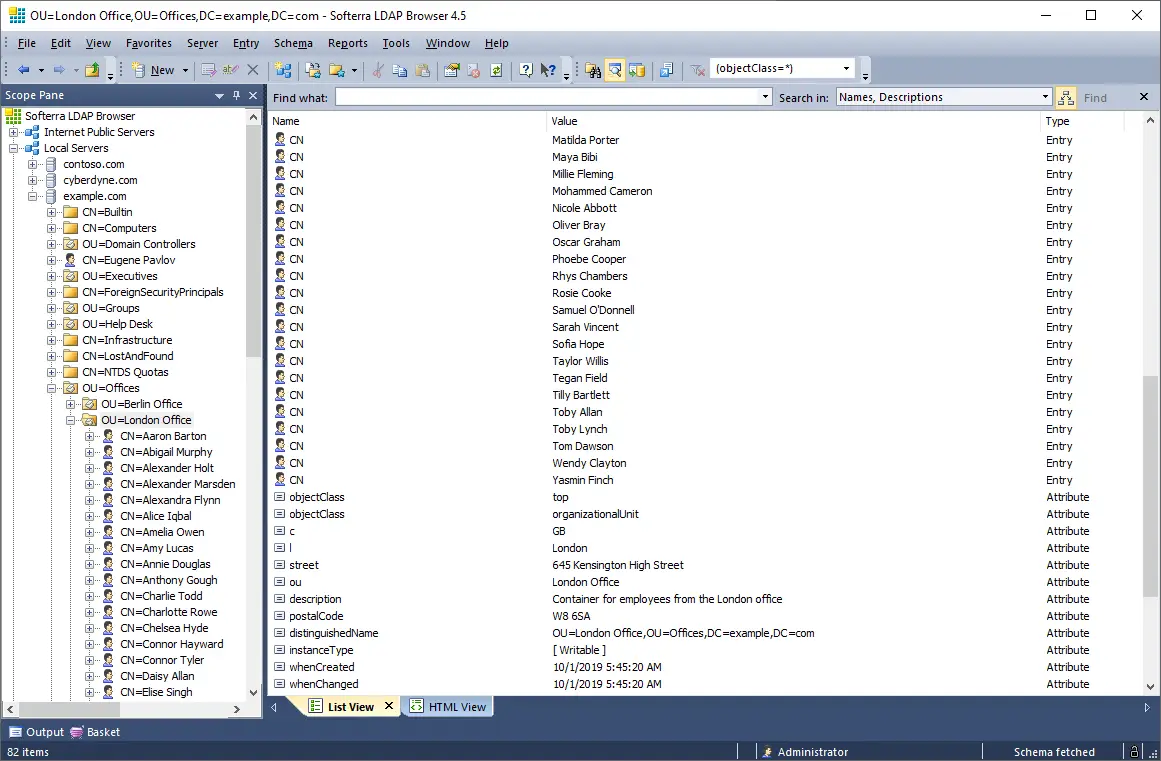

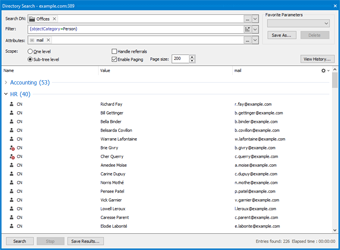
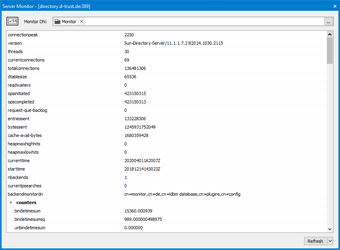
Apart from other capabilities provided by Softerra LDAP Browser, you may take advantage of the following functionality:
Softerra LDAP Browser is capable of working with any LDAP server available at present including, but not limited to the following most popular ones: